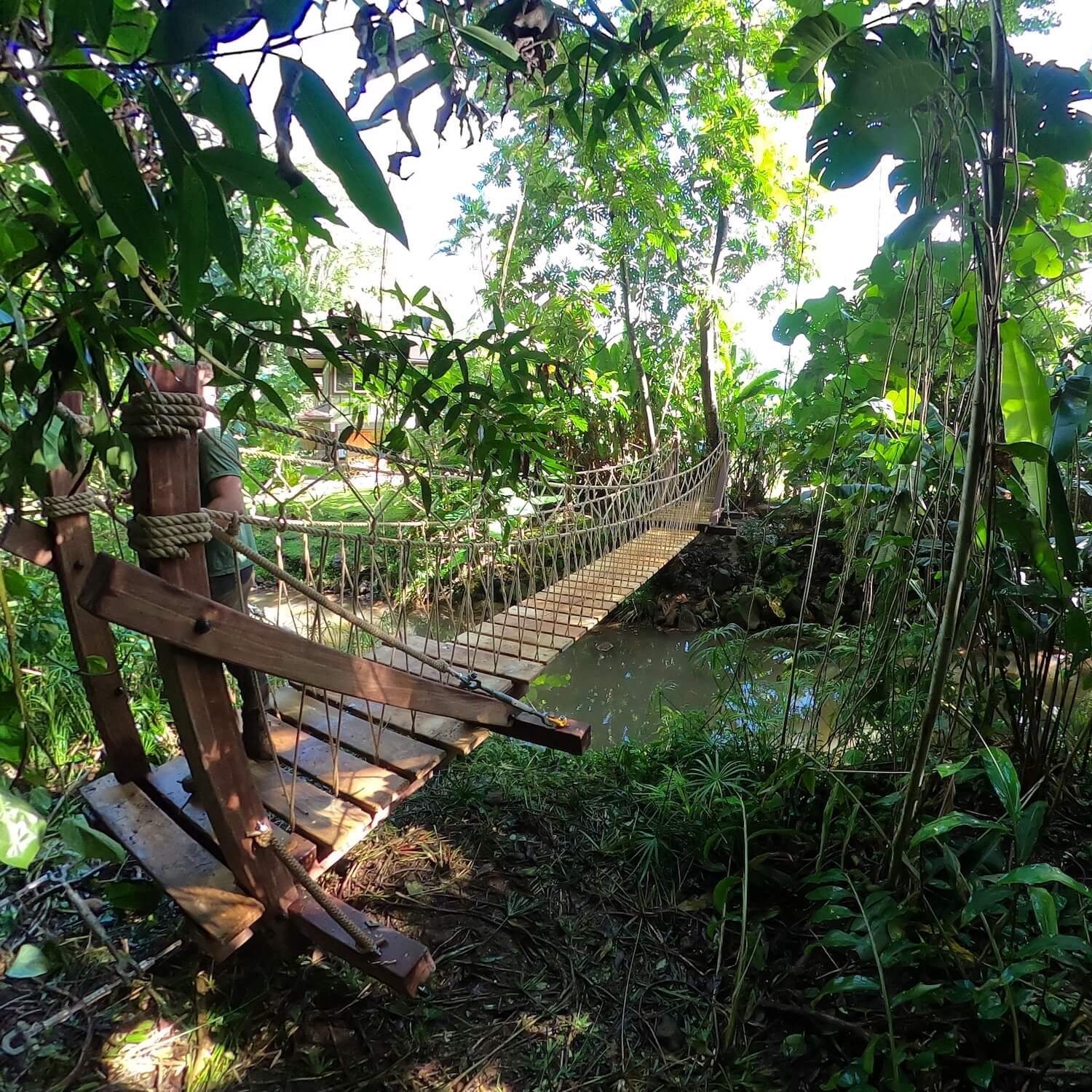
How we build Visitor Rope Bridge Projects
Treehouse Life Ltd. offers unique, adventure-filled Rope Bridges that combine thrill with safety, designed for leisure use without the need for active safety systems, belays, or specialised training. Our rope bridges create memorable experiences in a supported environment, ensuring ease of use for all participants. The design minimises physical challenges, with only a simple entrance and exit platform, making them an accessible and enjoyable attraction for families, visitors, and adventure seekers alike.
Though not legally bound by EN 15567 - specific to high ropes courses with belay systems - Treehouse Life Ltd. upholds high standards in health and safety by referencing this European Ropes Course Standard as a general framework for the design, inspection, maintenance, and operation of our rope bridges. As both Constructors and supporters of our Clients (Operators), we’re committed to responsible practices that align with the latest safety considerations, ensuring a durable, enjoyable, and secure experience.
Our focus on compliance and safety makes our rope bridges suitable for a range of commercial or private applications, such as family attractions, parks, or private estates. Clients can be confident that our installations meet robust quality and safety benchmarks, designed and maintained to exceed expectations. Treehouse Life Ltd. brings decades of expertise in crafting world-class Rope Bridges that elevate any outdoor environment, aligning with adventure and leisure while prioritising user safety.
Security and Emergency Plan
Treehouse Life Ltd. advises suitable attire for the Rope Bridge, recommending comfortable, flexible clothing like long trousers, joggers, and fully-laced trainers. Signage reinforces safety by advising against loose garments or abrasive elements. Participants should dress as they would for a garden, park, or woodland activity, ensuring ease of movement and safety while navigating the bridge.
In commercial situations it will generally be appropriate to have a policy on ratios, maximum group size, use of staff/assistants, etc. This should take account of management difficulties on particular elements. There should be sufficient security of the whole area to ensure that only personnel under suitable supervision are able to use the facility.
There will be a need for checking any conditions that requires a participant to receive special attention, or who may be excluded from the activity. If this is the case this will call for additional personnel to be there and will need to be an appropriate system for making them available.
In addition to normal first aid facilities it may be appropriate to include scenario-based training, using actual elements, so staff can identify the problems as well as the solutions particular elements may present.
Participants not involved in an element may be harmed in a variety of ways. For example, participants 'waiting their turn' can wander off into the surrounding natural areas.
In the event of an injured person within the Rope Bridge, there should be an immediate assessment by the staff as to the ability of that person to be guided and instructed to exit the walkway. If they are unable to be guided across then the staff will need to enter the walkway. All relevant staff should be fully trained and familiar with access into the walkway. It may be that necessary first aid or treatment is administered within the walkway or support is given for exit of the facility. The whole area should adopt a non-smoking policy.
